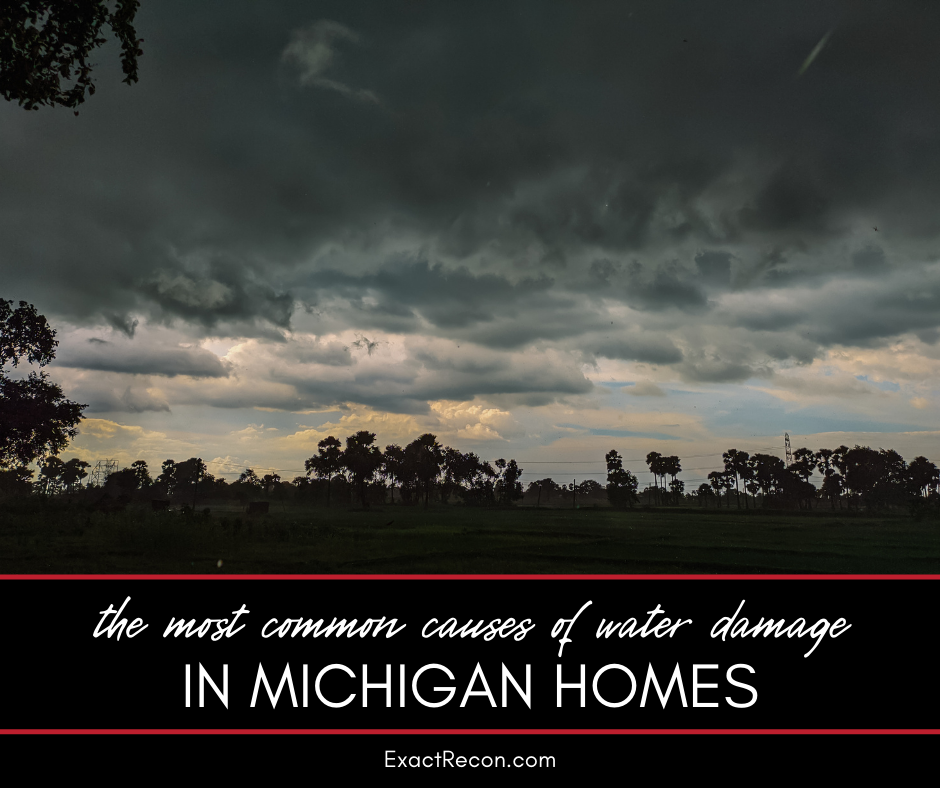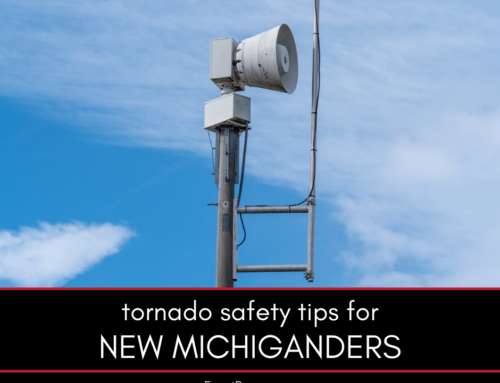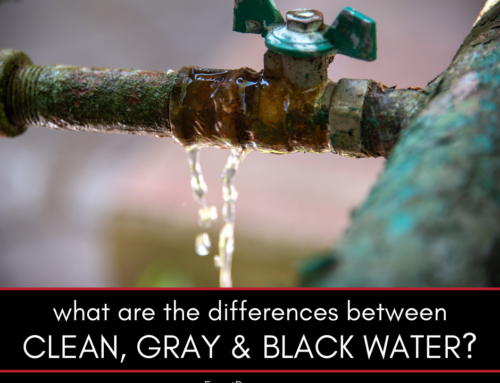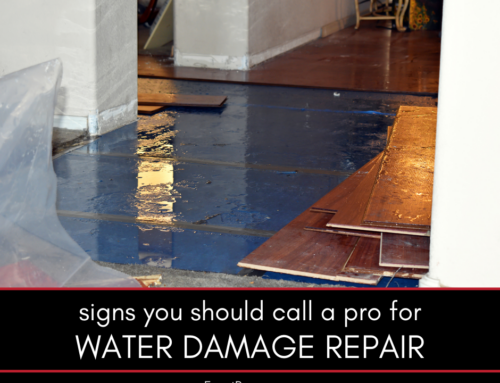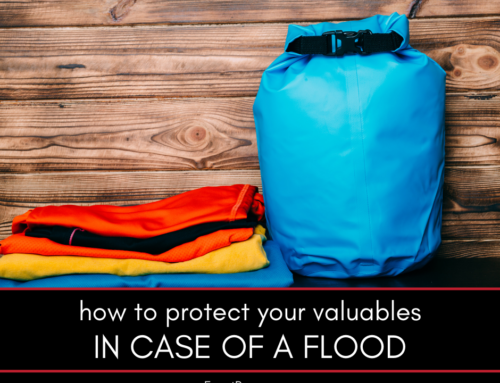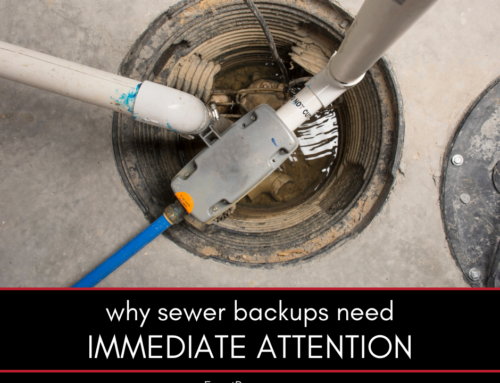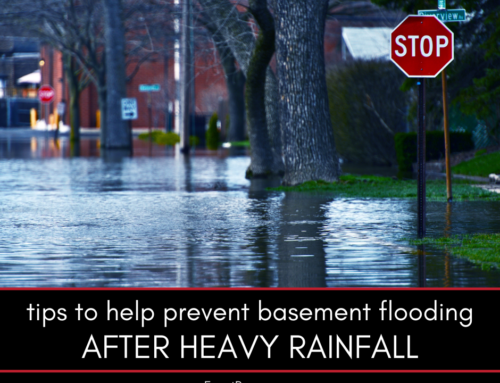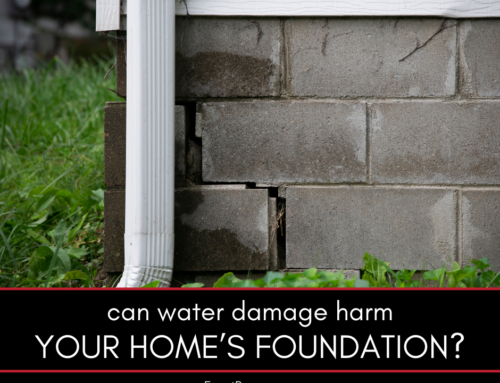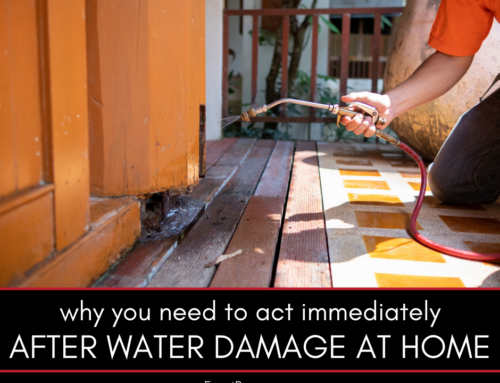Water damage is a common issue that many Michigan homeowners face. Understanding the common causes can help you take preventative measures and address problems before they become severe.
Common Causes of Water Damage in Michigan Homes
Water damage can result from various sources and can cause significant issues if not addressed promptly. This guide explains the following:
- Severe weather and flooding
- Plumbing leaks and failures
- Roof damage and leaks
- Clogged gutters and downspouts
- Basement and foundation issues
- Appliance malfunctions
- Poor ventilation and humidity
Here’s a closer look at each.
Severe Weather and Flooding
Michigan’s weather can be unpredictable, with heavy rains, snowmelt, and storms often leading to flooding. Flooding can cause extensive water damage, especially in low-lying areas and basements. Homeowners should be prepared for severe weather by ensuring proper drainage around their property and having a sump pump installed in the basement. If you experience flooding, it’s crucial to address the water damage immediately to prevent further issues like mold growth and structural damage. Calling a professional for water damage restoration is often necessary to handle severe flooding effectively.
Related: Expert tips for dealing with water and fire damage, mold and more
Plumbing Leaks and Failures
Plumbing issues are a common cause of water damage in homes. Leaks can occur in pipes, faucets, and fixtures, often going unnoticed until significant damage has occurred. Burst pipes, particularly during Michigan’s cold winters, can lead to severe water damage. Regular maintenance and inspections of your plumbing system can help prevent leaks and identify potential problems early. If you discover a plumbing leak or experience a burst pipe, it’s essential to call a professional plumber immediately to fix the issue and prevent further damage.
Related: Restoring your business after a natural disaster
Roof Damage and Leaks
Roof damage is another common source of water damage. Missing or damaged shingles, broken seals around vents and chimneys, and aging roofing materials can allow water to seep into your home. Regular roof inspections and maintenance can help identify and repair issues before they lead to significant water damage. After a severe storm or heavy snowfall, it’s especially important to check your roof for damage. If you find leaks or damage, contact a professional roofer to address the problem and prevent further water intrusion.
Clogged Gutters and Downspouts
Gutters and downspouts are designed to direct water away from your home’s foundation. When they become clogged with leaves, debris, or ice, water can overflow and accumulate around your home, leading to water damage. Regularly cleaning your gutters and ensuring that downspouts are clear and properly positioned can help prevent this issue. Installing gutter guards can also reduce the frequency of clogs. If you notice water pooling around your home or overflowing gutters, it’s important to address the problem promptly to prevent damage to your foundation and basement.
Related: How to salvage your belongings after major home damage
Basement and Foundation Issues
Basements and foundations are particularly susceptible to water damage, especially in areas with high groundwater levels or poor drainage. Cracks in foundation walls, poor grading, and improper sealing can allow water to enter your basement, leading to moisture problems and potential structural damage. Regularly inspecting your basement and foundation for cracks and signs of water intrusion is crucial. Waterproofing your basement and ensuring proper drainage around your home can help prevent these issues. If you experience persistent water problems in your basement, it’s best to consult a professional for a thorough assessment and appropriate solutions.
Appliance Malfunctions
Household appliances such as washing machines, dishwashers, water heaters, and refrigerators can cause water damage if they malfunction. Leaks can occur due to faulty hoses, connections, or internal failures. Regular maintenance and inspections of these appliances can help prevent leaks and identify potential issues. Replacing old hoses and ensuring that connections are secure can reduce the risk of water damage. If an appliance does leak or malfunction, it’s important to address the problem immediately and consider calling a professional for repairs.
Poor Ventilation and Humidity
Poor ventilation and high humidity levels can lead to water damage, particularly in areas like bathrooms, kitchens, and basements. Excess moisture can cause mold growth, wood rot, and damage to walls and ceilings. Ensuring proper ventilation in these areas is essential for preventing moisture buildup. Use exhaust fans in bathrooms and kitchens, and consider installing a dehumidifier in the basement to control humidity levels. Regularly inspecting these areas for signs of moisture and addressing any issues promptly can help prevent water damage.
FAQ About Common Causes of Water Damage
Check out these commonly asked questions about the common causes of water damage. If you don’t see your question here, please call our office and we’ll find you the answers you need.
How Can I Prevent Water Damage From Severe Weather?
To prevent water damage from severe weather, ensure proper drainage around your property, clean gutters and downspouts regularly, and install a sump pump in your basement. Regular roof inspections and maintenance can also help protect your home.
What Should I Do If I Discover a Plumbing Leak?
If you discover a plumbing leak, turn off the water supply to prevent further damage and call a professional plumber immediately. Document the damage for insurance purposes and start the cleanup process as soon as possible.
Related: Creating a disaster preparedness kit for your home
How Often Should I Clean My Gutters?
You should clean your gutters at least twice a year, ideally in the spring and fall. However, if you have a lot of trees near your home, you may need to clean them more frequently to prevent clogs.
Can Poor Ventilation Cause Water Damage?
Yes, poor ventilation can cause moisture buildup, leading to mold growth, wood rot, and damage to walls and ceilings. Ensuring proper ventilation in bathrooms, kitchens, and basements can help prevent these issues.
What Are the Signs of Foundation Water Damage?
Signs of foundation water damage include cracks in the foundation walls, water stains, dampness, and musty odors in the basement. If you notice any of these signs, it’s important to address the issue promptly to prevent further damage.
Do You Need a Disaster Remediation Expert in Washtenaw County or Jackson County?
If your home has already been damaged, we can help. Check out our services and call Exact Recon for your free disaster remediation quote today. We offer:
- Water damage restoration
- Fire damage restoration
- Mold removal and remediation
- Fire and smoke restoration
- Sewer cleanup and disinfecting
- Reconstruction
- Wind and storm damage repair

